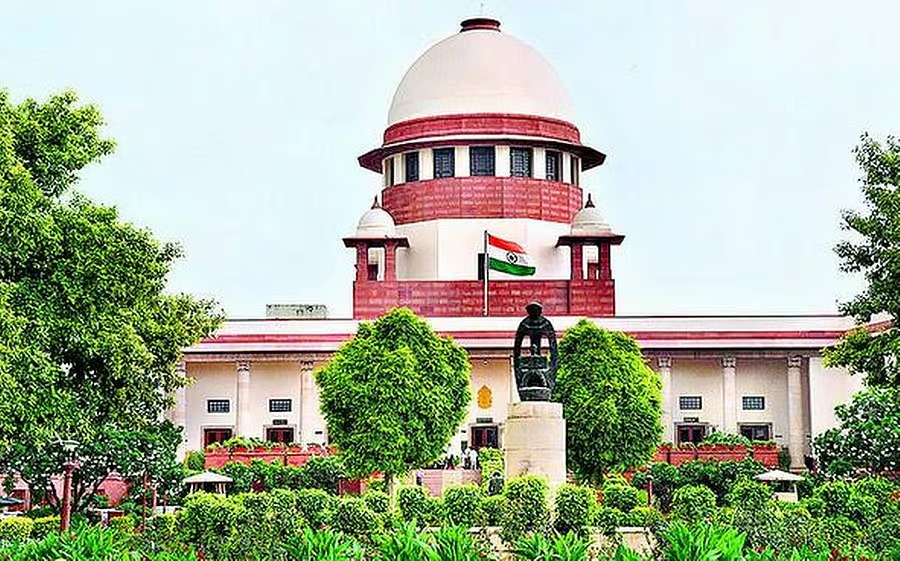Dr. J.N. Bhatt. C.J.
1. In this group of 23 Letters Patent Appeals under Clause 10 of the Letters Patent common questions of law and facts are involved. Therefore, upon joint request of learned counsel for the parties the matters were heard together and, now, they are being disposed of, simultaneously, by this common judgment. Learned counsel for the parties have been heard. The factual matrix has been examined. In one of the Letters Patent Appeals, the challenge is made by the private party whereas, in remaining 22 Letters Patent Appeals the challenge is at the instance of the State Government.
2. With a view to appreciating the merits and the proposition, let at this stage first be factual projections which are relevant and material for the purpose of adjudication of this group of appeals.
3. In Letters Patent Appeal No. 798 of 2005 at the instance of the private party against the State of Bihar arising out of C.W.J.C. No. 6852 of 2003 the order of termination from service of the appellant, original writ petitioner is upheld and converse is the situation in remaining appeals.
4. The original writ petitioners came to be appointed to the post belonging to Class III and Class IV on different date by the office of the District Education Officer and other authority of the Education Department in the State of Bihar. The respondents authorities upon complaints inquired, investigated and reached to a conclusion that the appointments of some of the petitioners were not legal and some of the appointments were not regular. Therefore, the order of termination of their services came to be passed.
5. The contention of the original writ petitioners has been that their appointments are regular and legal whereas, the contention of the respondent authorities in the original writ petitions has been that some of the appointments were without any sanctioned post or without due process of recruitment or not by the competent authorities and, therefore, the termination order is supported.
6. At the time of final hearing, learned counsel drawn our attention to the earlier two Division Bench judgments of this Court based on the decision of the Hon''ble Apex Court rendered in "The Secretary, State of Karnataka and Ors. vs. Uma Devi (3) and Ors.: (2006)4 Supreme Court Cases 1 [: 2006(2) PLJR (SC)363". The aforesaid two Division Bench decisions are:
(1)
(2) The State of Bihar & Ors. vs. Bipin Prasad Singh: L.P.A. No. 1211 of 2005 and other analogous cases decided on 22.11.2006.
7. Some of the original writ petitioners have been working since long, It appears that there is no any unambiguous and evident material to reach to a particular conclusion as to whether the appointments were legal or irregular. Therefore, in similarly situated cases upon consensus certain directions were given. Counsel have, also, jointly, submitted that similar directions may be given which have been given in the aforesaid two cases based on the aforesaid Uma Devi (3) case (supra). Virtually, in all the matters in this group common question of illegalities or irregularities or otherwise has been placed in focus.
8. In Uma Devi (3) (supra) case the material observations are made in paragraphs 49 and 53 Paras 36 and 44 of PLJR which will be relevant and material. The observations made in paragraph 49 of the aforesaid decision read herein under as:
"It is contended that the State action in not regularising the employees was not fair within the framework of the rule of law. The rule of law compels the State to make appointments as envisaged by the Constitution and in the manner we have indicated earlier. In most of these cases, no doubt, the employees had worked for some length of time but this has also been brought about by the pendency of proceedings in tribunals and courts initiated at the instance of the employees. Moreover, accepting an argument of this nature would mean that the State would be permitted to perpetuate an illegality in the matter of public employment and that would be a negation of the constitutional scheme adopted by us, the people of India. It is, therefore, not possible to accept the argument that there must be a direction to make permanent all the persons employed on daily wages. When the court is approached for relief by way of a writ, the court has necessarily to ask itself whether the person before it had any legal right to be enforced. Considered in the light of the very clear constitutional scheme, it cannot be said that the employees have been able to establish a legal right to be made permanent even though they have never been appointed in terms of the relevant rules or in adherence of Articles 14 and 16 of the Constitution."
9. Whereas, the very pertinent observations are made in paragraph 53 (Ed.--Paras 36 and 44 of PLJR of the said decision which are as follows:
"One aspect needs to be clarified. There may be cases where irregular appointments (not illegal appointments) as explained in
10. It leaves no any manner of doubt from the aforesaid observations, as well as the overall picture emerging from the entire factual and documentary collections coupled with the fact that there are some questions requiring investigation of facts to reach to a conclusion as to whether the appointments are legal, regular or not. It is in this context, we are inclined to give similar following directions, as we have given in other two decisions, to the State of Bihar:
(1) The Chief Secretary, Government of Bihar is directed to constitute a Committee of three Secretaries within a period of one month from today to examine the manner and mode and the type of Modus Operandi whether the appointments are in consonance with the recruitment Rules, regular, legal or not.
(2) The Committee shall consider the individual case after giving an opportunity of hearing to the affected employees and reach to a decision as to the nature of their appointments whether legal or not and valid or not.
(3) The Committee shall, obviously, take the decision in the light of law laid down by the Constitution Bench in
(4) It shall also be remembered that the exercise of regularisation, if required, shall be one time measure for the whole department and no further such exercise shall be permissible.
(5) The exercise by the Committee is directed to be completed within six months and in the event of any necessity it will be open for the concerned party to seek extension of time from this Court.
(6) The State is directed to maintain the status quo.
In view of the foregoing discussions, examination of the case law and the factual aspects, this Group of 23 Letters Patent Appeals shall stand disposed of without any order as to costs.
